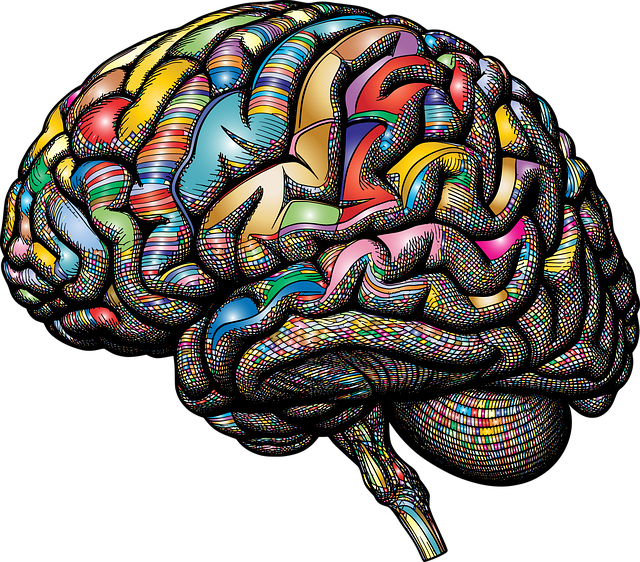Emotional Intelligence (EI) is a transformative force in mental healthcare, especially at Lone Tree Gender Identity Therapy. By focusing on self-awareness, empathy, effective communication, and mindfulness, EI enables individuals to navigate their emotions and relationships with confidence. This personalized approach, culturally sensitive and holistic, enhances well-being, promotes healing, and fosters meaningful connections, making it a powerful tool within the therapy's core practices.
Emotional intelligence (EQ) is a powerful tool for personal growth and effective relationships, and Lone Tree Gender Identity Therapy is here to guide you on this transformative journey. In today’s fast-paced world, understanding and managing emotions is more crucial than ever. This article explores the key components of EQ, offering insights into self-awareness, empathy, communication, and mindfulness—essential skills for building stronger connections and navigating life’s challenges with resilience.
- Understanding Emotional Intelligence and its Significance
- The Role of Self-Awareness in Building Emotional Intelligence
- Enhancing Empathy: Connecting with Others on a Deeper Level
- Effective Communication Strategies for Better Emotional Connection
- Practicing Mindfulness and Regulation Techniques for Emotional Balance
Understanding Emotional Intelligence and its Significance

Emotional intelligence (EI) is a key aspect of human interaction and personal growth that has gained significant attention in recent years. It involves recognizing, understanding, managing, and utilizing one’s own emotions as well as those of others. This ability to perceive and interpret emotional cues fosters effective communication, strengthens relationships, and enhances decision-making. In the context of Lone Tree Gender Identity Therapy, promoting EI is crucial for creating a safe and supportive environment where individuals can explore their identities with confidence.
The significance of EI in mental healthcare cannot be overstated, especially when considering the diverse range of patients and their unique experiences. Cultural sensitivity in mental healthcare practice, a facet of EI, plays a vital role in bridging cultural gaps and ensuring that every patient receives personalized care. By integrating self-care practices alongside EI development, therapists can create a holistic approach to treatment, enabling individuals to navigate life’s challenges with resilience and emotional agility.
The Role of Self-Awareness in Building Emotional Intelligence

Self-awareness is a cornerstone in building emotional intelligence, as it involves recognizing and understanding your emotions and how they influence your thoughts and actions. This process begins with an introspective look inward, allowing individuals to identify their feelings and the triggers associated with them. At Lone Tree Gender Identity Therapy, we emphasize self-awareness as a key component of our therapeutic practices, helping clients navigate complex emotional landscapes. By fostering self-awareness, individuals can gain profound insights into their unique emotional patterns, which is crucial for developing effective coping skills.
This heightened consciousness enables people to recognize when they’re experiencing strong emotions and understand the underlying causes, be it past traumas or specific stressors. It’s a powerful tool in preventing depression and promoting emotional healing processes. Through self-awareness, individuals can begin to respond mindfully rather than reacting impulsively to their emotions, fostering better relationships and overall well-being.
Enhancing Empathy: Connecting with Others on a Deeper Level

In Lone Tree Gender Identity Therapy sessions, enhancing empathy forms a cornerstone of emotional intelligence building. By fostering deeper connections with others, individuals learn to recognize and respect diverse perspectives, experiences, and emotions. This process encourages active listening, where every conversation becomes an opportunity to understand another’s journey, creating a supportive environment that promotes mental wellness.
Through the development of emotional healing processes and effective communication skills, participants cultivate a genuine interest in others’ well-being. This empathy translates into improved relationships, making each interaction more meaningful. Moreover, integrating this skill into daily life encourages self-care routine development for better mental health, enabling individuals to navigate social dynamics with compassion and insight.
Effective Communication Strategies for Better Emotional Connection

Effective communication is a cornerstone of emotional intelligence and can significantly enhance our connections with others, as well as our own emotional understanding. At Lone Tree Gender Identity Therapy, we emphasize the importance of open and honest dialogue in fostering meaningful relationships and facilitating emotional healing processes. By employing active listening techniques, individuals can ensure they fully comprehend both the words and underlying emotions expressed by their conversation partners. This not only strengthens bonds but also encourages self-awareness exercises, allowing people to recognize and articulate their own feelings more effectively.
Additionally, practicing empathy—the ability to understand and share the feelings of another—is a powerful tool for building emotional connections. When we take the time to see things from someone else’s perspective, we can respond with greater kindness and support, fostering an environment conducive to self-esteem improvement. Whether in personal or professional settings, these communication strategies are essential tools for anyone seeking to enhance their emotional intelligence and deepen their relationships.
Practicing Mindfulness and Regulation Techniques for Emotional Balance

Mindfulness and emotional regulation techniques are powerful tools for achieving balance and enhancing overall well-being. These practices have gained significant attention in the field of mental health, including Lone Tree Gender Identity Therapy, as they offer individuals a way to connect with their emotions, understand them, and manage them effectively. By cultivating mindfulness, one can learn to be present in the moment, observing thoughts and feelings without judgment, which is essential for emotional intelligence development.
Practicing awareness of breath, meditation, and body scans are simple yet effective methods to regulate mood and enhance mental wellness. These techniques help individuals become more attuned to their emotional states, enabling them to recognize early signs of distress or shifts in mood. Through regular integration into daily routines, these practices can foster better emotional intelligence, allowing folks to navigate life’s challenges with greater resilience and a deeper understanding of themselves.
Emotional intelligence, a crucial aspect of personal growth, is a skill that can be cultivated through various practices. By enhancing self-awareness, developing empathy, and adopting effective communication strategies, individuals can navigate relationships with greater depth and understanding. Mindfulness techniques offer a path to emotional balance, allowing one to manage their responses and create healthier interactions. Lone Tree Gender Identity Therapy emphasizes the significance of these tools in fostering personal transformation and improving overall well-being. Embracing these principles empowers individuals to connect more meaningfully with themselves and others.














